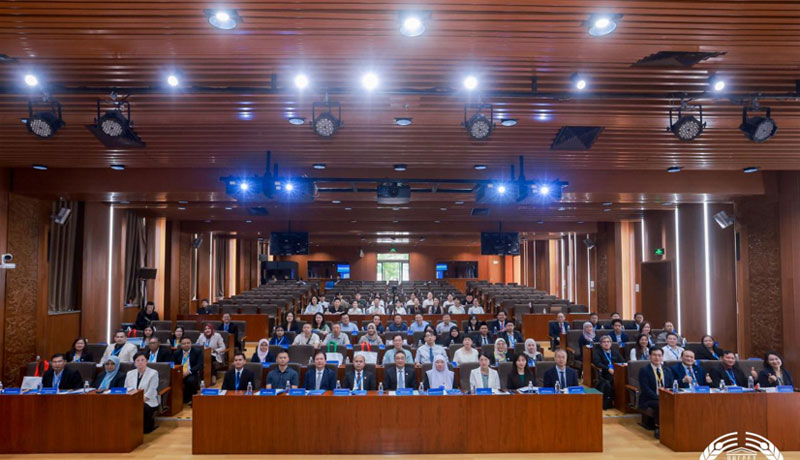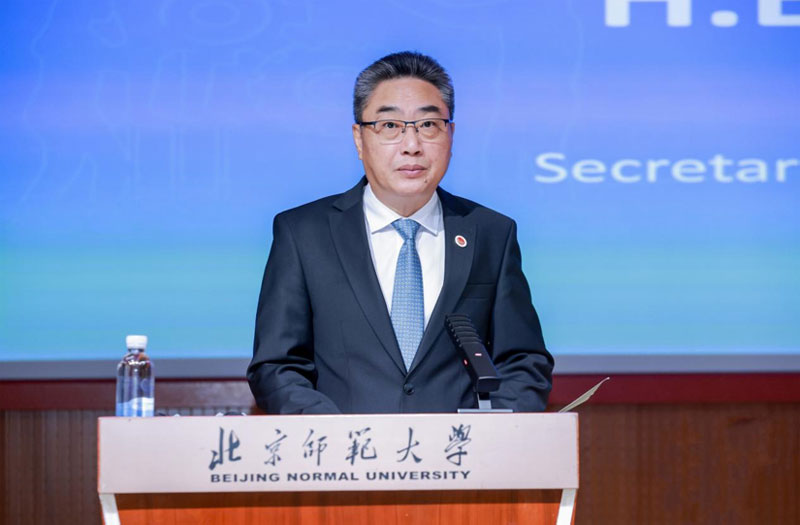
On August 18, 2025, the ASEAN-China TVET Management Benchmarking Programme (the China-Southeast Asia Capacity Development Workshop: TVET Digital Transformation for Sustainable Rural Development) was held in Beijing. It was jointly organized by the ASEAN-China Centre (ACC), the UNESCO International Research and Training Centre for Rural Education (UNESCO-INRULED), the Southeast Asian Ministers of Education Organization Regional Centre for Technical Education Development (SEAMEO TED) and the China Education Association for International Exchange (CEAIE). The Progrmme brought together over a hundred vocational education policymakers, vocational college presidents, experts, scholars, and industry representatives from China and 11 Southeast Asian countries to have in-depth discussion on regional vocational education cooperation in the context of digital transformation. H.E. Secretary General Shi Zhongjun of the ACC, and Datuk Dr. Habibah Abdul Rahim, Secretary-General of SEAMEO addressed the Opening. Professor Shahbaz Khan, Director of the UNESCO Beijing, delivered a video speech. Huang Kan, President of the Beijing Education Association for International Exchange (BEAIE), and Khat Prumsochetra, Deputy Director of SEAMEO TED presented keynote reports at the Opening.

Shi Zhongjun emphasized that as the China-ASEAN Comprehensive Strategic Partnership continues to gain robust momentum, industrial upgrading, digital transformation and rural revitalization have created urgent demand for highly skilled talents. He stated that the ACC will continue to serve as a platform for in-depth exchanges and practical cooperation in vocational education, injecting new impetus into digital transformation and regional integration.

Habibah Abdul Rahim noted that the programme provides a platform for policy dialogue, experience sharing, and digital reform in vocational education between China and ASEAN, helping to advance rural skills transformation through digital technology and achieve sustainable rural revitalization. Shahbaz Khan highlighted in his video speech that by 2030, over 60% of global vocational skills will undergo changes, while vocational education will create pathways for rural learners to upgrade their technical skills, offering new opportunities to translate knowledge into development.
The five-day programme includes policy exchanges, expert lectures, participant discussions and field visits. Additionally, it will feature dedicated dialogues with applied universities and vocational colleges in Beijing, fostering mutual learning, collaborative development, and practical cooperation. It seeks to drive the cultivation of technical and skilled talent through vocational education, empowering regional economic prosperity and sustainable development.